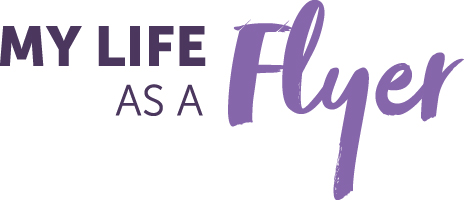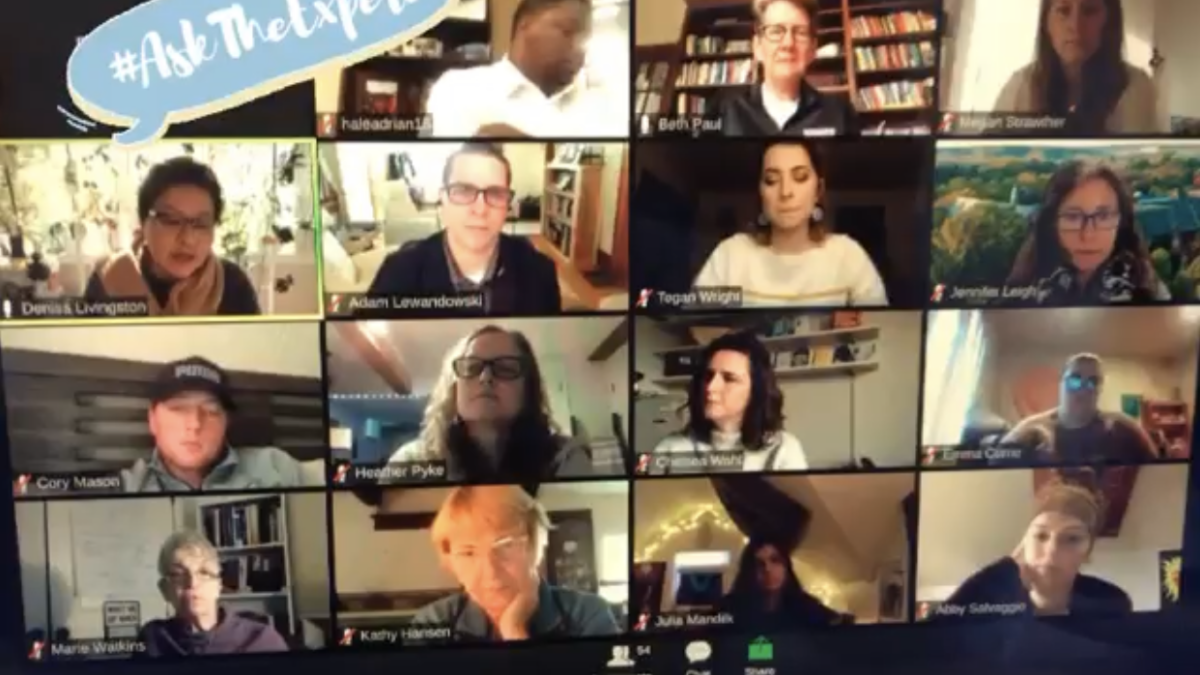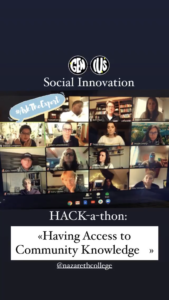 Systematic racism is at its peak, hard working women make 81% of men’s salaries, 15% of the world living with a disability, all during a global pandemic. So you don’t like what’s going on in the world. What now?
Systematic racism is at its peak, hard working women make 81% of men’s salaries, 15% of the world living with a disability, all during a global pandemic. So you don’t like what’s going on in the world. What now?
Change is a concept some are afraid of while others challenge head on. We approach change hesitant, yet ambitious for our goals for ourselves, loved ones and society. By recognizing and understanding what we have yet to learn, humility teaches us an essential lesson about self-awareness and development. When we listen to our community, we gain the perspectives of our fellow bench warmers and starting line ups to the team, as well as our coaches and fans. The ability to understand and emphasize for our surroundings helps us to move with integrity looking for better solutions with our partners. Our teammates, leaders, and spectators are here together to support one another with the same goal and same hopes to accomplish it.
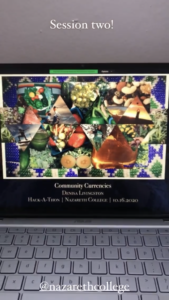 A social innovation is a novel solution to a social problem that is more effective, efficient, just, or sustainable, than the current solution and the outcomes prioritize others before the creators of the solution. Nazareth’s Social Innovation Hack-a-thon explored new ways to improve racial inequality, women’s rights, and reform for people with disabilities within our society. They addressed the lack of concern in our community for predominantly black neighborhoods, for women exhausting themselves to fight for the salary they deserve in our capitalistic society, and the privileges we forget from being fully capable to reach our full potentials. So how can we be aware of societal issues and continue our lives accepting others struggles?
A social innovation is a novel solution to a social problem that is more effective, efficient, just, or sustainable, than the current solution and the outcomes prioritize others before the creators of the solution. Nazareth’s Social Innovation Hack-a-thon explored new ways to improve racial inequality, women’s rights, and reform for people with disabilities within our society. They addressed the lack of concern in our community for predominantly black neighborhoods, for women exhausting themselves to fight for the salary they deserve in our capitalistic society, and the privileges we forget from being fully capable to reach our full potentials. So how can we be aware of societal issues and continue our lives accepting others struggles?
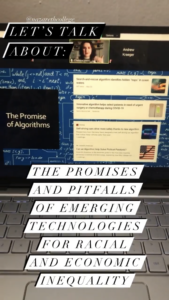 We see D.I.Ys and “Hacks” everyday in society, but what are they? How are they translated to educate others? A HACK is Having Access to Community Knowledge to complete a goal. Being a changemaker comes with the responsibility to reach our goals by striving for new, repurposed and revised solutions. We need our community to rebuild our society norms together by connecting, empathizing, and educating our teammates throughout society. By teaching our community and accepting our differences we can fight social injustice and inspire change.
We see D.I.Ys and “Hacks” everyday in society, but what are they? How are they translated to educate others? A HACK is Having Access to Community Knowledge to complete a goal. Being a changemaker comes with the responsibility to reach our goals by striving for new, repurposed and revised solutions. We need our community to rebuild our society norms together by connecting, empathizing, and educating our teammates throughout society. By teaching our community and accepting our differences we can fight social injustice and inspire change.
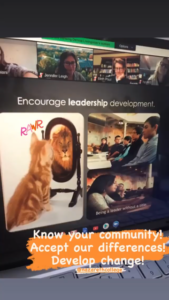 I learned at the Social Innovation Hack-a-thon that society settles for systematic racism every day. We allow the disabled to fight for their rights alone, and women can only work so hard to find their equality without the support from the community. Our teammates are tired, and it’s our responsibility to take care of them. Facial Recognition features in our technologies are significantly easier for people with lighter skin. This trend of inequality is linked in our every day lives and we need to encourage the acknowledgment of our privileges and strive for a better society in our futures.
I learned at the Social Innovation Hack-a-thon that society settles for systematic racism every day. We allow the disabled to fight for their rights alone, and women can only work so hard to find their equality without the support from the community. Our teammates are tired, and it’s our responsibility to take care of them. Facial Recognition features in our technologies are significantly easier for people with lighter skin. This trend of inequality is linked in our every day lives and we need to encourage the acknowledgment of our privileges and strive for a better society in our futures.
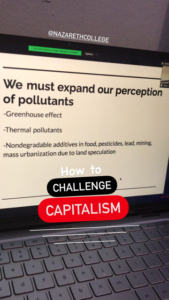 Being a changemaker takes work and practice. Working as a team to assess how we are connected, collaborate with our effects within society, and address the roots to these societal issues can allow our talents to support change. I am a social change maker because I strive to be the voice for inequality to bring awareness of what we can improve on. I want to deepen my understanding of our country’s weaknesses and strengths for citizens’ rights, and I want to address methods to educate our community. When Thomas Jefferson said, “knowledge is power,” I felt that and strive to see it in action throughout our futures.
Being a changemaker takes work and practice. Working as a team to assess how we are connected, collaborate with our effects within society, and address the roots to these societal issues can allow our talents to support change. I am a social change maker because I strive to be the voice for inequality to bring awareness of what we can improve on. I want to deepen my understanding of our country’s weaknesses and strengths for citizens’ rights, and I want to address methods to educate our community. When Thomas Jefferson said, “knowledge is power,” I felt that and strive to see it in action throughout our futures.
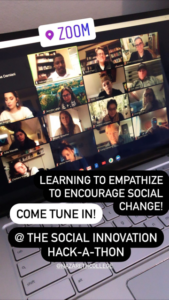 As a community, we have the responsibility to create change and the first step is addressing the issue and educating others. So next time you use your phone’s facial recognition, remember your fellow teammates that don’t always benefit in the same way. Let’s talk about it and create change for our futures. The future depends on it.
As a community, we have the responsibility to create change and the first step is addressing the issue and educating others. So next time you use your phone’s facial recognition, remember your fellow teammates that don’t always benefit in the same way. Let’s talk about it and create change for our futures. The future depends on it.
